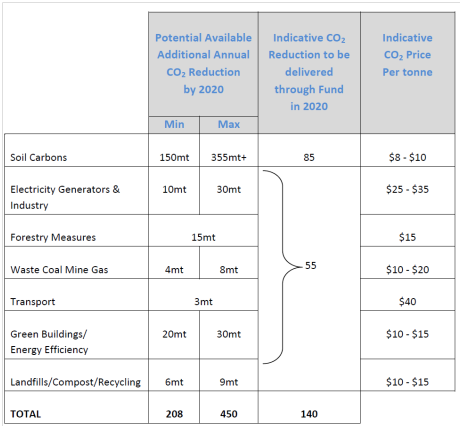Hunt damned by his own numbers
The Coalition is still yet to supply updated costings that demonstrate its Direct Action policy could reliably deliver on the 5 per cent emissions reduction target.
Since the Monash University/Sinclair Knight Merz analysis was released showing a $4 billion shortfall in the Coalition’s budget, shadow climate minister Greg Hunt has continued to maintain he is “confident” they will reach the target while stating the budget is capped and will not be increased. Hunt also now claims his 2010 costing was highly conservative. In support of this claim his office points out that Australia’s actual emissions have tracked substantially lower than originally envisaged, and international accounting rules now recognise natural carbon stores beyond forests such as carbon stored in soils. Consequently, the amount of abatement that needs to be acquired to meet the 2020 target has been slashed in half.
However, the Monash-SKM analysis took into account this substantial reduction in actual emissions and the natural carbon store accounting in its finding of a $4 billion shortfall. The Coalition is still yet to supply any detailed evidence to explain why it is so confident that its acquisition costs for abatement are so much lower than the Monash-SKM analysis.
Because the Coalition won’t actually update its own assumptions, let’s have a look at their numbers for them.
In essence, Monash-SKM estimate the Coalition needs to acquire about 373 million tonnes of abatement over the period to 2020 to meet Australia’s Kyoto II obligations, consistent with the 5 per cent emissions reduction target. The cumulative budget to acquire this abatement is $4.95 billion. Dividing one by the other, they can afford to spend an average of about $13.27 per tonne of CO2 equivalent.
The only budgeting detail on supply and cost of abatement we have for the Coalition’s Direct Action scheme is from its 2010 climate change election platform – the table shown below. This table illustrates the quantity of abatement the Coalition envisages could be supplied in the single year of 2020 and its likely cost per tonne of CO2.

Based on its own costing above, for a price of $13.27 per tonne the Coalition can’t afford any abatement from electricity generators or industry, nor forestry measures or transport.
Nonetheless if we were to use the Coalition’s so-called minimum estimate of abatement supply to be genuinely conservative, it can still get:
–150Mt from soil carbon;
– 20Mt from energy efficiency, given the price range sits close to $13.27/tCO2;
– 6Mt from reducing emissions in waste (landfills/compost/recycling) given the price range also sits close to $13.27tCO2, and;
– They might potentially be able to get 4Mt from waste coal mine gas although the price range goes noticeably above $13.27/tCO2.
The problem for the Coalition is that their soil carbon estimates are fanciful as explained previously in Climate Spectator here, here and here. ABC’s Lateline program has also shown the numbers to be ludicrous. Instead, according to environmental scientist and soil carbon expert Ben Rose, the Coalition might be able to obtain 2.5 million tonnes of verifiable abatement per year at a cost in the realm of $13.27.
If we were to accept the other costings by the Coalition above (which we really shouldn’t because they are highly likely to underestimate the cost of abatement, as explained here) then they could afford to purchase 32.5Mt of abatement per annum. Multiply that out by the six years of the program and it buys them 195Mt.
They are still 175 million tonnes short of the target, and that’s all using the Coalition’s own costings, with a simple adjustment for the fact their soil carbon estimates are completely unrealistic.
















